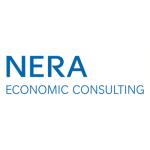Multinational enterprises regularly operate centralised financing entities, for example, in the Benelux countries. Recently, these structures have come under mounting pressure from national (German) and supranational (OECD) governing bodies. The viability of whether financing centres can survive this pressure is increasingly debated. Moreover, if so, there are new considerations for what needs to be changed in their setup and documentation.
In February 2020, the OECD issued its “Guidance on Financial Transactions”. This guidance primarily raises documentation requirements for financial transactions: taxpayers must describe (and justify) the nature and circumstances of the transaction and be more detailed about the functional and risk analysis of the entities. This a major shift because it means taxpayers must justify the loan structure instead of merely taking it as given. Crucially, however, the OECD does not question that ‘interest benchmarks’ (i.e., a review of market interest rates on bonds) are still a valid transfer pricing method.
Contrarily, in Germany this transfer pricing method is under attack from financial courts and a proposed law. Recent rulings by German financial courts hold that the length standard applies not only to the interest rate but also on the general nature of the agreement. Would independent third parties have granted or received a similar loan at all? For unsecured loans, courts have questioned the arrangement and reclassified the transaction as an ancillary financial service that should be remunerated on a cost-plus basis.
This reclassification can have extreme consequences: A loan of, say, €300 million with an interest spread of 1 percentage point would lead to profits of €3 million at a financing centre. Conversely, the financing centre itself might only have costs of for example €100,000, so even a mark-up of 10% would only lead to a profit of €10,000.
This approach by German financial courts is essentially backed by the German Ministry of Finance, which has issued a draft law as part of the implementation of the European Anti-Tax Avoidance Directive (ATAD). The draft of this law was published in December 2019 with a public consultation period of only two and a half days, and most regulations came into force in January 2020. Besides various other rules, it essentially confirms the view of financing centres as service providers that should earn a cost-plus margin.
The broad attack on financing centres is bad news for many taxpayers who have come to rely on such structures for their internal financing needs. First, there is a risk that tax authorities in countries where interest is paid will deny deductibility, and second, the difference in applied transfer pricing methods means that international arbitration mechanisms are going to be more complicated and less effective. The result could be double taxation and increased controversy, so what can taxpayers do to alleviate the situation?
First and foremost, taxpayers should show that the nature of the transaction itself is arm’s-length and sensible from a business perspective, that is, the focus should not just be on any interest rate benchmarking but also on providing evidence that the transaction is common in the market. Tax firms have successfully helped clients defend financing centres in tax audits where auditors were questioning the nature of the transaction. For several real estate companies, tax firms can show that unsecured loans can be found in the market between independent enterprises and that, depending on the profile of the borrower, these loans are common by the arm’s-length standard with more than 25% of the loans unsecured. Based on this evidence, German tax authorities in cases have accepted the nature of the transaction and the overall setup.
Going forward, financing centres and interest benchmarking will be under increased pressure, and while taxpayers likely would do well to step up their documentation, we also hold that many of these structures are commercially valid and valuable and will continue to exist if properly documented.
Yves Hervé
T: +49 69 710 447 502,
Philip de Homont
T: +49 69 710 447 508
Georg Dettmann
T: +49 69 7104 47509














